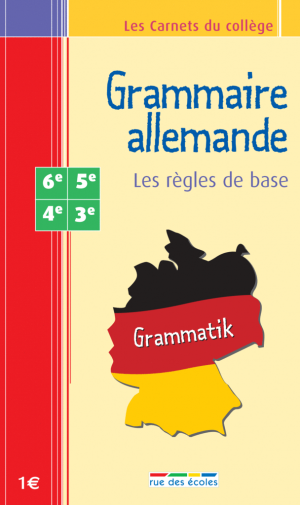Difference between revisions of "Language/German/Grammar/Cases"
Jump to navigation
Jump to search
| Line 1: | Line 1: | ||
[[File: | [[File:9782844312396pre_pz.png|thumb|none]] | ||
There are four cases in German: nominative, accusative, dative, genitive. | There are four cases in German: nominative, accusative, dative, genitive. | ||
* Nominative indicates the subject of a verb, such as "the monkey" in "'''The monkey''' eats a banana." "'''Der Affe''' isst eine Banane." | * Nominative indicates the subject of a verb, such as "the monkey" in "'''The monkey''' eats a banana." "'''Der Affe''' isst eine Banane." | ||
Revision as of 13:11, 21 May 2018
There are four cases in German: nominative, accusative, dative, genitive.
- Nominative indicates the subject of a verb, such as "the monkey" in "The monkey eats a banana." "Der Affe isst eine Banane."
- Accusative indicates the direct object of a transitive verb, such as "a pen" in "He bought a pen." "Er hat einen Stift gekauft."
- Dative indicates the noun or pronoun which receives something if it's not a subject, such as "him" in "His father will give him a tricycle." "Sein Vater wird ihm ein Dreirad geben."
- Genitive usually indicates the possesor of something, such as "my mom" in "This is a helicopter of my mom." "Das ist ein Hubschrauber meiner Mutter."
This lesson means to keep brief. It only covers the main usage, to make people understand quickly.
